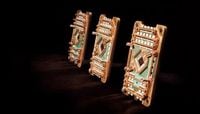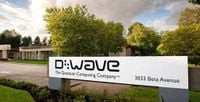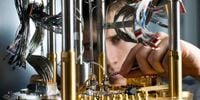D-Wave Quantum Inc., a leader in quantum computing, reported remarkable first-quarter results on May 8, 2025, surpassing all expectations and signaling a promising future for the sector. The Palo Alto-based company generated an impressive $15 million in revenue during the first three months of the year, a staggering 509% increase from the $2.5 million recorded in the same period last year. Analysts had projected a much lower figure of $2.55 million, making D-Wave's performance all the more striking.
The surge in revenue was primarily attributed to the sale of a cutting-edge quantum system to Germany’s Jülich Supercomputing Centre. This facility purchased one of D-Wave's latest Advantage2 quantum processors in February 2025, which will be integrated into a forthcoming supercomputer boasting over one exaflop of processing capacity. This advancement is expected to enhance research capabilities in various fields, including artificial intelligence and materials science.
Dr. Alan Baratz, CEO of D-Wave, described the first quarter of 2025 as "arguably the most significant in D-Wave’s history." He emphasized the company's milestones, including recognizing revenue from its first Advantage system sale to a major research institution, moving another customer application into commercial production, and achieving quantum supremacy over classical computing for a useful real-world problem. This achievement was detailed in a peer-reviewed paper published in the journal Science in March 2025.
The Advantage2 quantum processor represents a significant leap in technology. With over 4,400 qubits, this latest iteration can execute certain calculations used in materials science projects up to 25,000 times faster than its predecessor. Each qubit in the Advantage2 is equipped with three sets of couplers, allowing it to synchronize with 20 other qubits, thereby enhancing computational efficiency. Moreover, the new version features double the qubit coherence time of earlier models, addressing one of the primary challenges in large-scale quantum computing—data errors.
In addition to its hardware advancements, D-Wave released a new version of its hybrid quantum nonlinear solver software during the first quarter. This tool is designed to facilitate business applications, such as budget allocation planning, showcasing the commercial viability of quantum technologies.
Financially, D-Wave saw its net loss narrow from $11.9 million in the first quarter of 2024 to $5.4 million this year. On an adjusted basis, the company reported earnings of four cents per share, a significant improvement compared to the expected six-cent loss projected by analysts. This positive financial trajectory, coupled with a record gross profit of $13.9 million and an impressive gross margin of 92.5%, underscores D-Wave's growing market presence.
As a result of these strong earnings, D-Wave's stock soared by over 51% following the announcement, reaching $10.44 in trading. This dramatic increase not only reflects investor confidence in D-Wave but also buoyed shares of competitors, with Rigetti Computing and Quantum Computing Inc. experiencing gains of 8% and 10%, respectively.
Investors are increasingly optimistic about the quantum computing sector, which has been characterized by volatility and speculation. D-Wave's success could validate the investment case for quantum technologies, indicating a shift towards meaningful revenue generation in the industry. The company also highlighted successful collaborations, such as Ford Otosan's deployment of a hybrid-quantum solution that dramatically reduced vehicle scheduling time from 30 minutes to under five minutes, and Japan Tobacco's use of D-Wave’s technology in drug discovery processes.
Looking ahead, D-Wave is well-positioned to capitalize on its momentum. The company ended the first quarter with a record cash balance of $304.3 million, which is expected to sustain operations until it reaches profitability. Baratz expressed confidence in D-Wave's potential, stating, "We believe that D-Wave has the opportunity to be the first independent, publicly held quantum computing company to achieve sustained profitability with less funding than required by any other independent, publicly held quantum computing company."
Despite the positive outlook, D-Wave acknowledged a 64% drop in bookings for the first quarter, totaling $1.6 million. This decline raises questions about future demand, but the company remains focused on its ongoing projects, including a new quantum initiative with Davidson Technologies in Huntsville, Alabama.
As quantum computing continues to evolve, D-Wave's advancements and financial performance mark a significant chapter in the industry's growth. The company's ability to deliver practical solutions and demonstrate real-world applications of quantum technology could reshape the landscape of computing, making it a sector to watch closely in the coming years.






